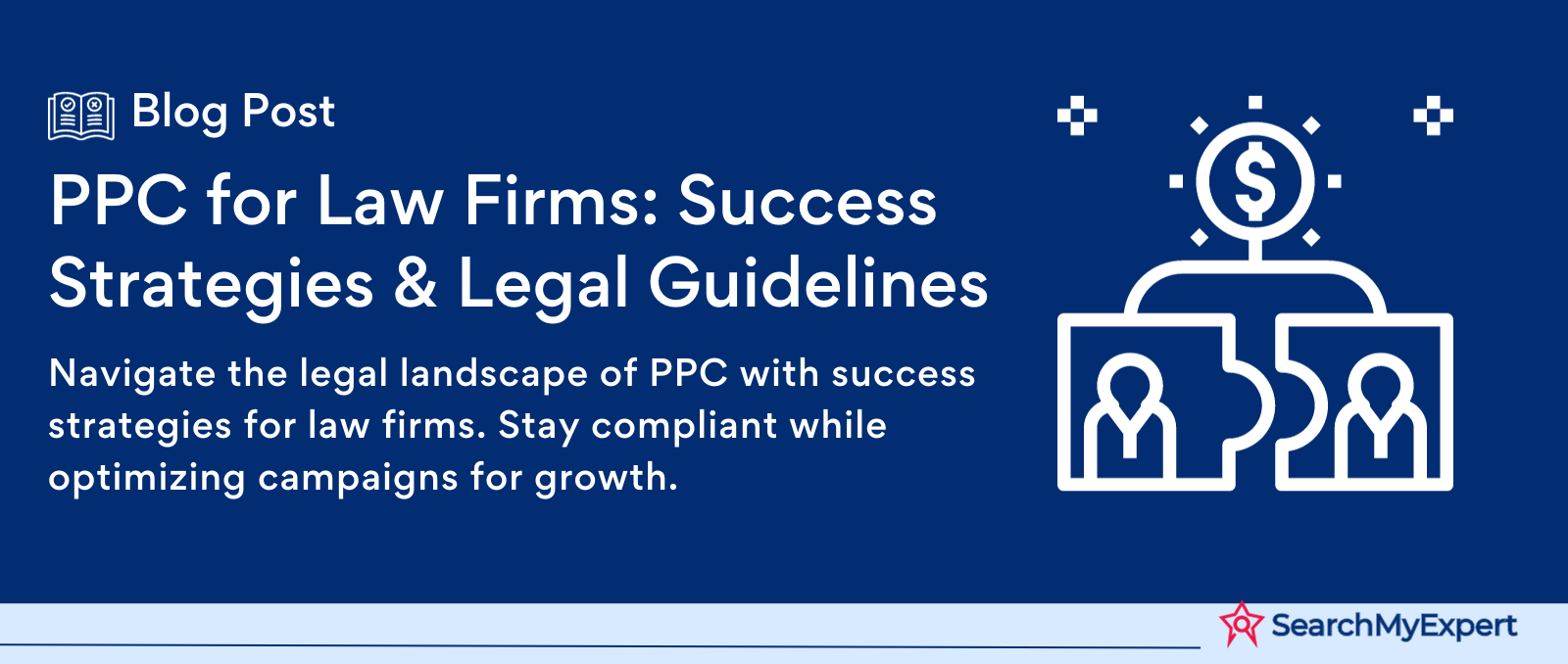PPC for Law Firms: Success Strategies & Legal Guidelines

Navigating the Legal Maze of PPC Advertising: A Guide for Law Firms
Pay-Per-Click (PPC) advertising has emerged as a formidable tool for law firms aiming to enhance their online presence and attract high-quality leads. The ability of PPC to target specific demographics and interests makes it a powerful driver of business growth. However, as with any form of advertising, PPC is not without its legal intricacies, particularly for law firms. Understanding and navigating these legal considerations is crucial to ensure both compliance and effectiveness of your PPC campaigns.
Decoding the Legal Landscape of PPC Advertising
Legal Framework Governing PPC Advertising
Law firms venturing into PPC advertising must first familiarise themselves with the legal framework that governs digital advertising. This encompasses a range of laws and regulations designed to protect consumers and ensure fair competition. Adherence to these legal standards is not just about avoiding penalties; it’s about building a campaign that respects the legal and ethical boundaries of advertising.
Key Legal Considerations
- Advertising Laws Specific to the Legal Industry: The legal industry is subject to specific advertising regulations, which vary by jurisdiction. These may include restrictions on the type of information that can be advertised and how it is presented.
- Intellectual Property and Trademark Usage: Using trademarks in PPC campaigns, especially those of competitors, can lead to legal issues. Understanding the scope of intellectual property rights is essential to navigate this area.
- Consumer Protection Laws: These laws prevent deceptive advertising practices. Law firms must ensure that their PPC ads are truthful and not misleading.
- Data Privacy and Confidentiality: In an era where data is king, respecting client confidentiality and adhering to privacy laws is paramount in PPC campaigns.
Addressing Common Legal Pitfalls in PPC Advertising
Combating Click Fraud
Click fraud can significantly impact the effectiveness and reputation of PPC campaigns. This deceptive practice, where clicks on PPC ads are artificially inflated, can drain advertising budgets and skew campaign data.
Preventing and Detecting Click Fraud
- Implement advanced tracking and monitoring tools.
- Regularly review click patterns and sources.
- Engage with PPC platforms for support and resolution.
Navigating Demographic Targeting
While targeting specific demographics is a cornerstone of PPC’s effectiveness, it carries the risk of discriminatory practices. Law firms need to ensure that their targeting methods do not inadvertently discriminate based on protected characteristics.
Trademark Usage in PPC Campaigns
Using competitor trademarks in PPC can be a legal minefield. It's important to understand the nuances of trademark law and how it applies to online advertising.
Guidelines for Trademark Compliance
- Conduct a thorough trademark search before campaign launch.
- Avoid using competitors' trademarks in a misleading manner.
- Be aware of the difference between fair use and infringement.
Embracing Legal Compliance in PPC Advertising
Consistent legal reviews of PPC campaigns are not just a best practice; they are a necessity. Engaging with legal experts who specialise in advertising and intellectual property law can provide invaluable insights.
Maintaining Legal Compliance
- Develop and enforce clear advertising policies.
- Implement effective click fraud detection systems.
- Provide regular training to staff on the legal aspects of PPC advertising.
Adhering to Ethical Advertising Practices
Ethical advertising is especially significant in the legal profession, given the trust clients place in legal advisors.
Guidelines for Ethical PPC Advertising
- Avoid misleading or false claims about legal services.
- Ensure clarity and simplicity in ad copy.
- Respect the privacy and confidentiality of potential clients.
Leveraging Legal Expertise for PPC Success
The complexity of PPC advertising law underscores the value of expert legal guidance.
Benefits of Partnering with PPC Agencies
- Access to specialised knowledge in legal compliance.
- Potential cost savings and enhanced campaign effectiveness.
Conclusion
In conclusion, mastering the art of PPC advertising is crucial for law firms in the digital era. The journey through the legal maze of PPC is challenging but immensely rewarding, offering a strategic avenue to attract high-quality leads and drive business growth. Law firms need to be acutely aware of the legal implications of their advertising efforts, ensuring compliance with industry-specific regulations, intellectual property laws, consumer protection standards, and privacy policies.
The path to PPC success involves a delicate balance between marketing effectiveness and legal compliance. By adhering to ethical advertising standards and leveraging legal expertise, law firms can craft PPC campaigns that not only reach their target audience but also uphold the dignity and trust inherent in the legal profession.
Engaging with legal counsel specialising in advertising law and collaborating with reputable PPC agencies can further enhance a firm's ability to navigate these complexities. These partnerships provide invaluable insights into maintaining legal and ethical standards, thereby protecting the firm's reputation and financial interests.
Ultimately, the strategic use of PPC advertising, underpinned by a solid understanding of its legal landscape, can be a transformative tool for law firms. It empowers them to connect with clients in meaningful ways while maintaining the highest standards of legal ethics and compliance. As law firms continue to adapt to the evolving digital marketing world, mastering PPC advertising will remain a key component of their success and growth.
Boost your business with result-driven PPC Services.
share this page if you liked it 😊
Other Related Blogs

Mastering Docker for App Development: A Comprehensive Guide to Benefits, Use-Cases, and Alternatives
STAY UP TO DATE
GET PATH'S LATEST
Receive bi-weekly updates from the SME, and get a heads up on upcoming events.
Contact Us











